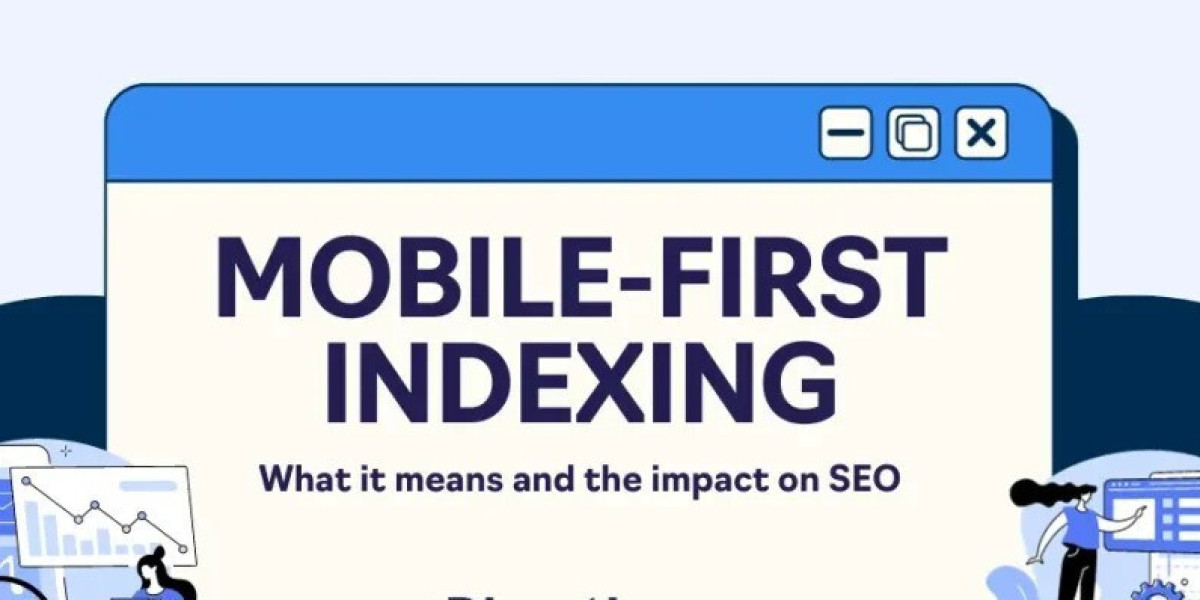As mobile usage continues to dominate online traffic, ensuring your website performs optimally for mobile-first indexing is more crucial than ever. Google's shift to mobile-first indexing prioritizes mobile versions of websites for crawling and ranking. One of the most effective ways to enhance the speed and performance of your mobile site—and, consequently, your search engine rankings—is by implementing HTTP/3. This new web protocol can significantly boost the speed, security, and efficiency of your site, which are key factors for both user experience and technical SEO.
In this article, we’ll explore how adopting HTTP/3 can improve your website’s SEO performance, particularly in the context of mobile-first indexing. We’ll also dive into why technical seo agencies are recommending this upgrade to ensure ecommerce businesses stay competitive in today’s digital landscape.
What Is HTTP/3?
HTTP/3 is the latest version of the Hypertext Transfer Protocol, which is the foundation of the data exchange between web browsers and servers. It’s an improvement over its predecessor, HTTP/2, with a focus on faster and more secure web experiences. HTTP/3 leverages the QUIC (Quick UDP Internet Connections) protocol, which improves data transmission and security by reducing latency and connection times. Unlike previous versions, HTTP/3 uses a different protocol (UDP instead of TCP) to create more efficient connections. This change is particularly beneficial for mobile users who may have slower or less stable connections, making it highly relevant for mobile-first indexing.
The Importance of Mobile-First Indexing in SEO
Google's mobile-first indexing means that the search engine primarily uses the mobile version of a website’s content for indexing and ranking. As the majority of global web traffic now comes from mobile devices, this shift ensures that websites are optimized for mobile users. Technical SEO agencies place significant emphasis on optimizing mobile performance as part of a comprehensive technical seo service to improve visibility and ranking potential. Since page load speed and user experience are critical factors in mobile-first indexing, implementing HTTP/3 can provide substantial advantages. Faster, more secure connections mean users have a smoother browsing experience, which can reduce bounce rates and improve your site's SEO.
How HTTP/3 Improves SEO for Mobile-First Indexing
Improved Speed and Lower Latency
Speed is a critical factor in both SEO and user experience. Google considers page load time as a ranking factor, particularly for mobile users. HTTP/3 reduces connection times and minimizes latency, which translates into faster page load times. This is particularly beneficial for mobile users, who often experience slower load times due to network issues or slower mobile connections. By speeding up your mobile site, technical SEO for ecommerce becomes more effective, as faster load times can lead to higher rankings in mobile search results. This, in turn, improves user engagement, lowers bounce rates, and increases conversions.
Better Connection Stability
For mobile users, one of the most frustrating experiences is having a website fail to load properly due to a weak or unstable connection. HTTP/3 resolves this issue by using the QUIC protocol, which allows for more reliable connections even in less-than-ideal network conditions. This means that pages are more likely to load completely and quickly, even if the user’s mobile connection is inconsistent. For ecommerce sites, which rely on quick and seamless browsing experiences to convert users, the stability provided by HTTP/3 can lead to improved performance metrics such as time on page and conversion rates. This, in turn, contributes positively to your overall technical seo strategy.
Enhanced Security
HTTP/3 improves web security through encryption protocols built directly into the QUIC framework. Not only does this enhance user privacy and data security, but it also boosts your website’s credibility. Google tends to favor secure sites, and SSL encryption is already a known ranking factor. By implementing HTTP/3, you can ensure your website is not only secure but also fast, ticking both boxes for technical SEO agencies focused on boosting rankings. Improving security through HTTP/3 implementation also enhances trust among your users, particularly in ecommerce, where secure transactions are critical. A trusted, secure site is more likely to rank higher, particularly as Google continues to prioritize user safety in its ranking algorithms.
Optimized User Experience
A key part of technical SEO is ensuring that users have a positive experience on your site. This includes fast load times, secure connections, and the ability to browse with ease. By switching to HTTP/3, you provide users with faster, more reliable access to your content, especially on mobile devices. Optimizing for user experience not only reduces bounce rates but also increases user engagement, both of which are important factors for SEO. Technical SEO agencies often recommend implementing HTTP/3 as part of a broader strategy to improve mobile-first indexing, as a positive user experience leads to better rankings.
Mobile-First Optimization for Ecommerce Sites
For ecommerce businesses, speed and security are particularly crucial. Online shoppers expect fast, frictionless browsing and checkout experiences. When a page takes too long to load, or when a connection feels unstable, users are more likely to abandon their carts. Implementing HTTP/3 ensures that ecommerce sites remain fast and reliable even on mobile devices, reducing cart abandonment rates and improving the overall customer experience. By integrating HTTP/3 with technical seo for ecommerce, businesses can boost their mobile rankings and create a more seamless shopping experience for mobile users. Ecommerce sites that perform well in mobile-first indexing are more likely to be visible in search engine results, driving organic traffic and increasing sales.
Why Technical SEO Agencies Recommend HTTP/3
The implementation of HTTP/3 is increasingly becoming a best practice among technical SEO agencies. It offers clear advantages in speed, security, and overall user experience, which are all essential components of a successful technical SEO strategy. Moreover, as Google continues to emphasize mobile-first indexing, ensuring that your mobile site is optimized with the latest protocols like HTTP/3 is crucial for maintaining and improving your search rankings. Working with a technical seo agency can help streamline the implementation of HTTP/3. They can ensure that the transition is smooth, without disrupting the performance of your website, and that all other aspects of your SEO strategy are aligned with Google’s latest guidelines.
Conclusion
As mobile traffic continues to dominate the digital landscape, optimizing your website for mobile-first indexing is essential for maintaining a competitive edge. Implementing HTTP/3 can significantly enhance your site’s speed, reliability, and security, which are key factors in both user experience and SEO. For ecommerce websites, where performance and user trust are paramount, HTTP/3 provides a crucial advantage in retaining mobile users and boosting search engine rankings. By partnering with a technical SEO agency, businesses can ensure that they’re not only implementing HTTP/3 effectively but also optimizing their overall mobile-first SEO strategy. With the combined power of technical SEO services and the latest web protocols, your site will be well-equipped to rank higher, perform better, and engage mobile users more effectively.



